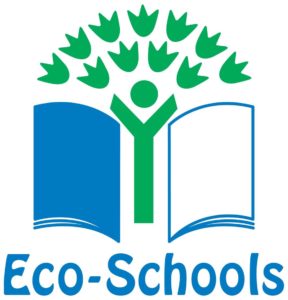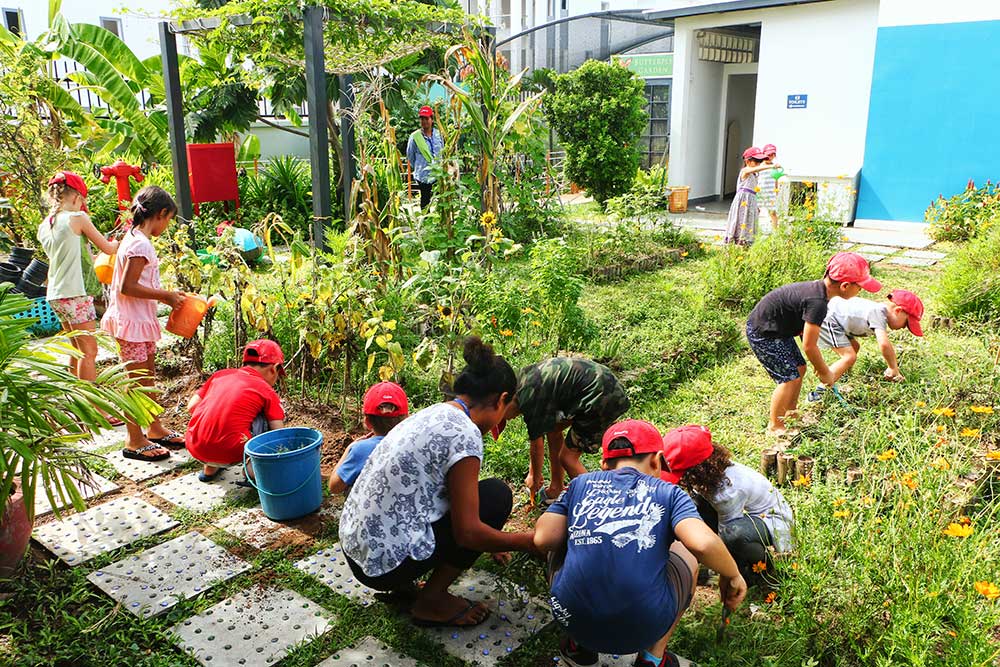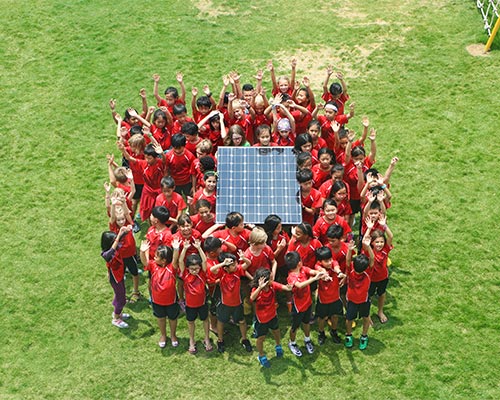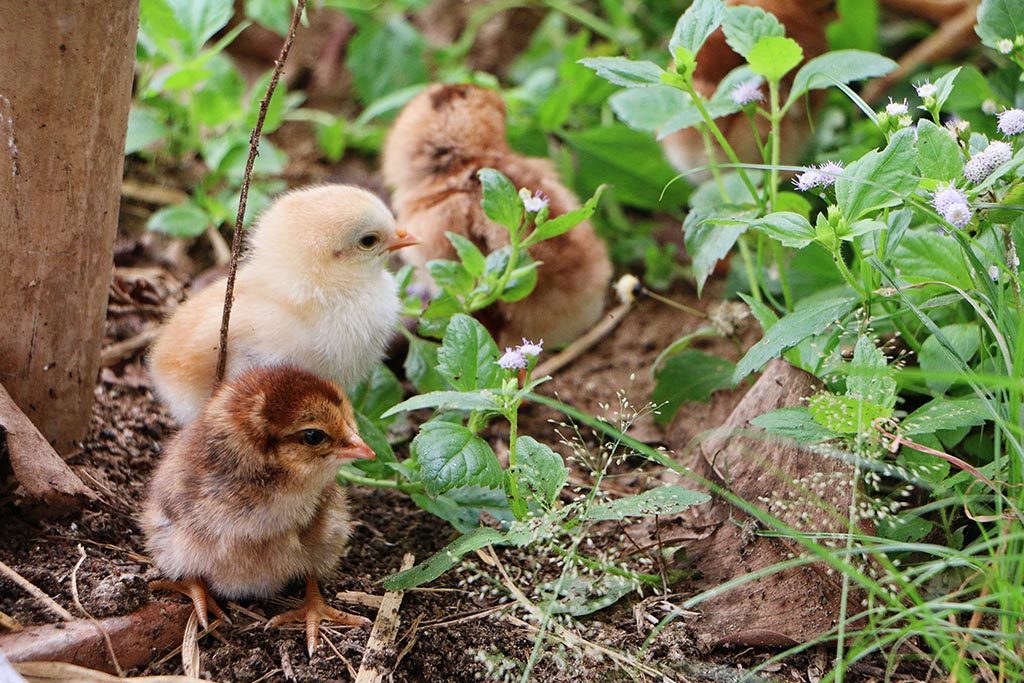Eco-Schools Certification
Becoming an Eco-School
In 2016, ISPP decided to join the Eco-Schools programme, with the goal of earning the Green Flag. The Green Flag is awarded when the school meets a number of set criteria. Eco-Schools encourage young people to engage in their environment by allowing them the opportunity to actively protect it. ISPP was successfully awarded the Green Flag in late 2018, re-accredited in 2022, and our students couldn’t be more proud!
 We see the Eco-Schools programme as an ideal way for the ISPP community to improve the environment in both the school campus and the local Chak Angre community while having an ongoing positive impact on the lives of young people, their families, staff and local authorities.
We see the Eco-Schools programme as an ideal way for the ISPP community to improve the environment in both the school campus and the local Chak Angre community while having an ongoing positive impact on the lives of young people, their families, staff and local authorities.
Through the Eco-Schools programme, ISPP students are able to have a say in the environmental management policies of our school and experience the rewards and sense of achievement that this brings.
The process involved identifying three themes, which at ISPP are: Waste, Energy and Global Citizenship. A school-wide action plan focused students’ attention towards certification and the prestige which comes with being awarded a Green Flag.
ISPP has audited its curriculum to ensure a thread of environmental education weaves from Early Years, focusing on the natural elements, through to the Diploma Programme’s Environmental Systems and Societies course.
Along with Learning, Community, and Well-being, Environment is one of the four pillars of ISPP’s Strategic Plan 2020-24. Achieving the standards for an Eco-School is one of its strategic goals, and the school will also environmentally maintain its facilities to a high quality and promote environmental consciousness within the school community.
Community & Initiatives
Here's how ISPP is already helping the environment

In April 2019, ISPP took the bold move to make our campus single-use plastic free. This includes water bottles, disposable cups, plastic bags and other lightweight, convenience plastics – all of which are now not permitted on our campus. We consider this one of our strongest initiatives to date, in both protecting the environment and leading by example to the community.
ISPP’s campus has been designed with the environment in mind. The school recycles its wastewater, using an underground treatment plant which removes most impurities from sewage and greywater to make it approximately 96% pure. The reclaimed water is used to irrigate the sports fields.

To reduce its carbon footprint and the dependency on traditional power, ISPP introduced a solar power system which now supplies 1MW and meets half the school’s electricity needs. As well as being beneficial to the environment, the system will have paid for itself in around 6 years. The lifespan of photovoltaic cells is between 20 – 25 years, so ISPP can devote more of its resources to worthy causes.
ISPP’s students are actively involved in recycling – they take food waste from the cafeteria and add it to the school’s compost bins. The compost is used as a natural fertilizer for the range of trees and flowers spread around the campus.
A further student-led initiative has reduced reliance on paper towels in bathrooms. ISPP has installed hand dryers throughout the school. This has reduced waste and, even with increased electricity use, it is still more environmentally friendly to use these low-power dryers. Students also led the way in proposing and implementing a successful school-wide ban on lamination.
Birds and Bees

ISPP installed beehives in response to a student initiative. Bees are some of nature’s hardest workers and their role in our environment cannot be underestimated due to the important part that they play in pollinating flowers, trees and plants.
They are joined by our chickens in residence, who regularly produce eggs in response to their happy lifestyle, and also recently added to their family with five new chicks. Along with our Butterfly Garden, where the lifecycle of many species of these beautiful insects can be observed, these initiatives allow students to learn about nature’s workers at close quarters.
Footer
Join Us
Make an inquiry or schedule a tour to find out more about our beautiful campus and unique education programmes.
